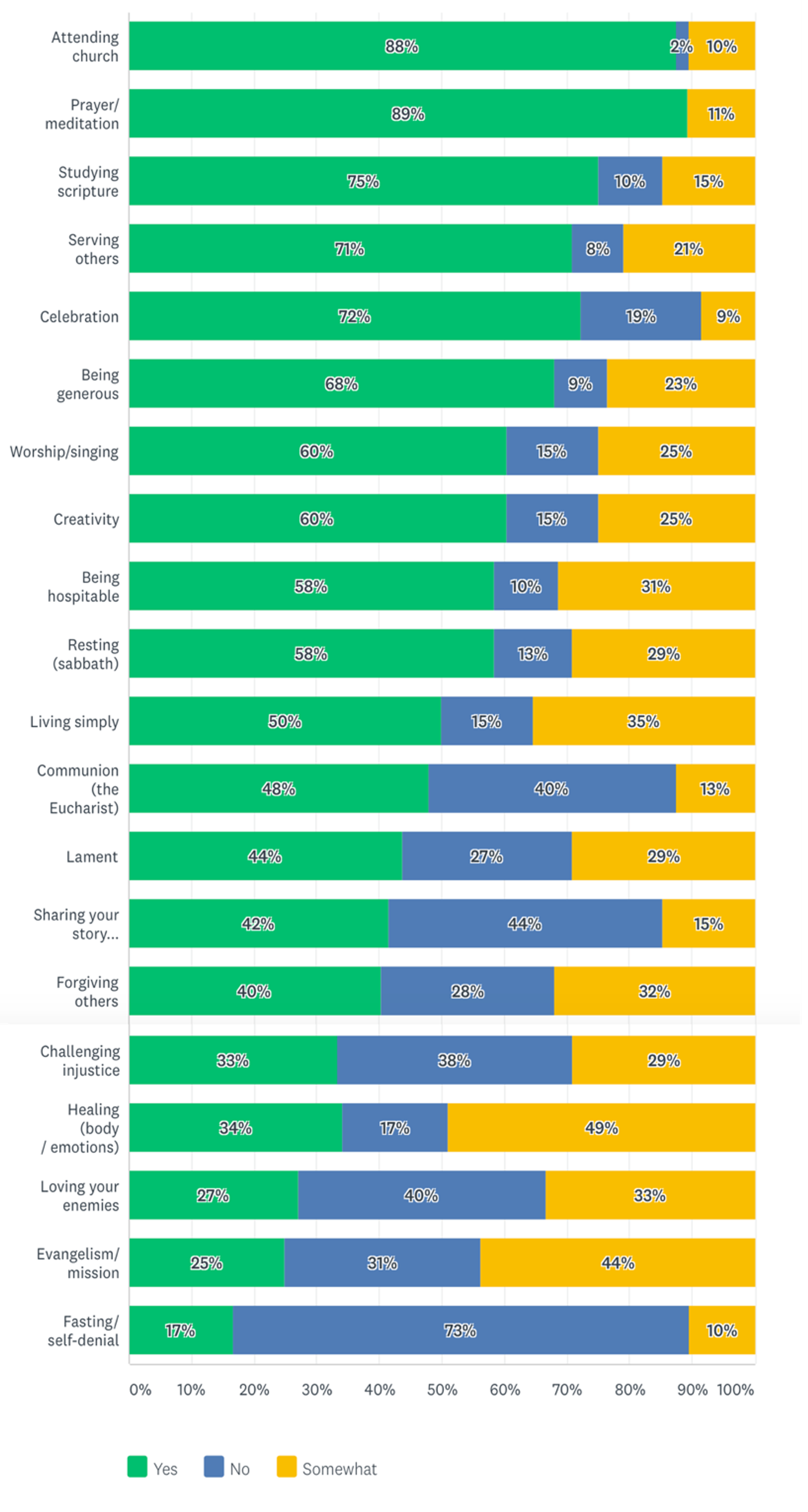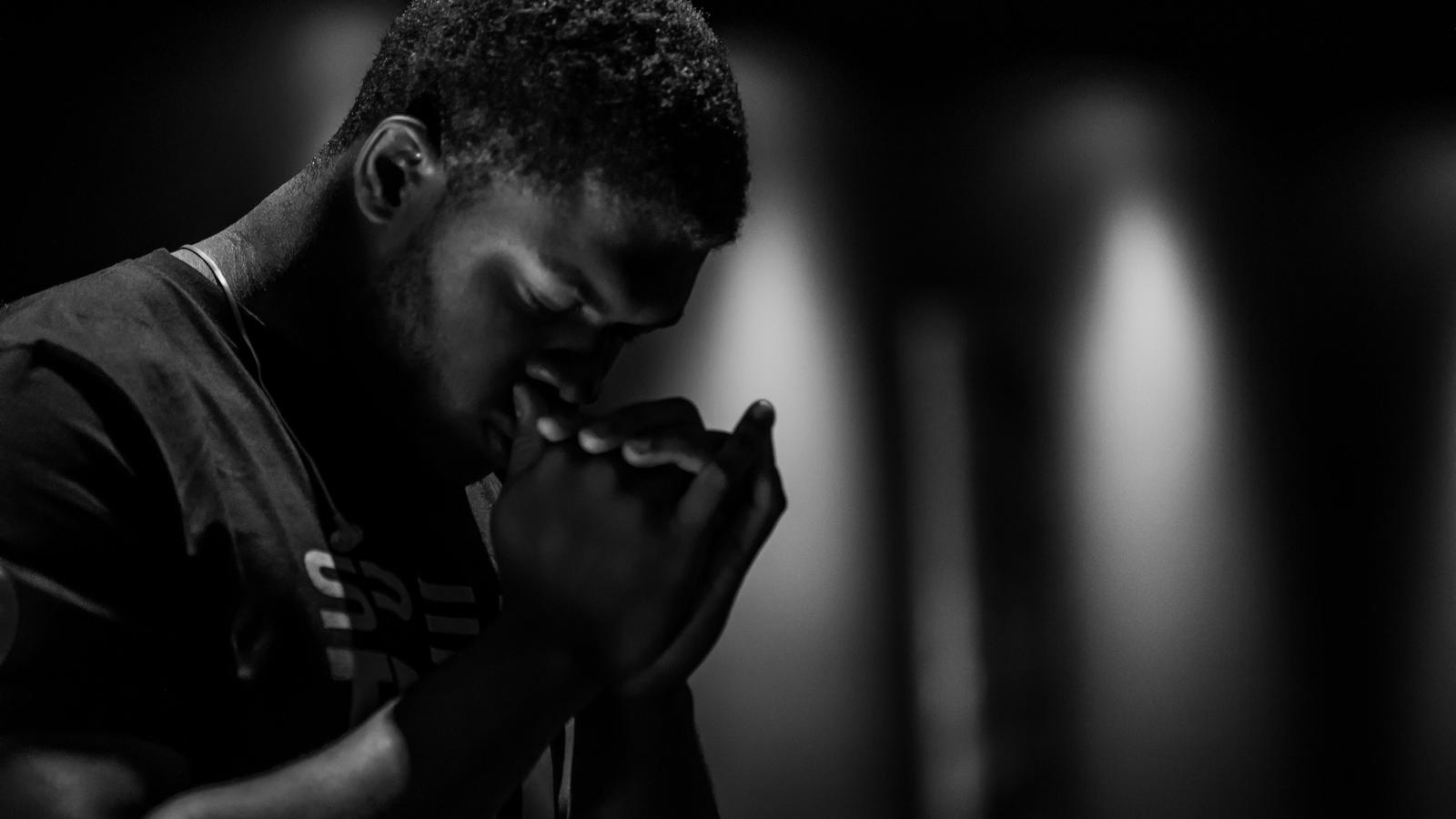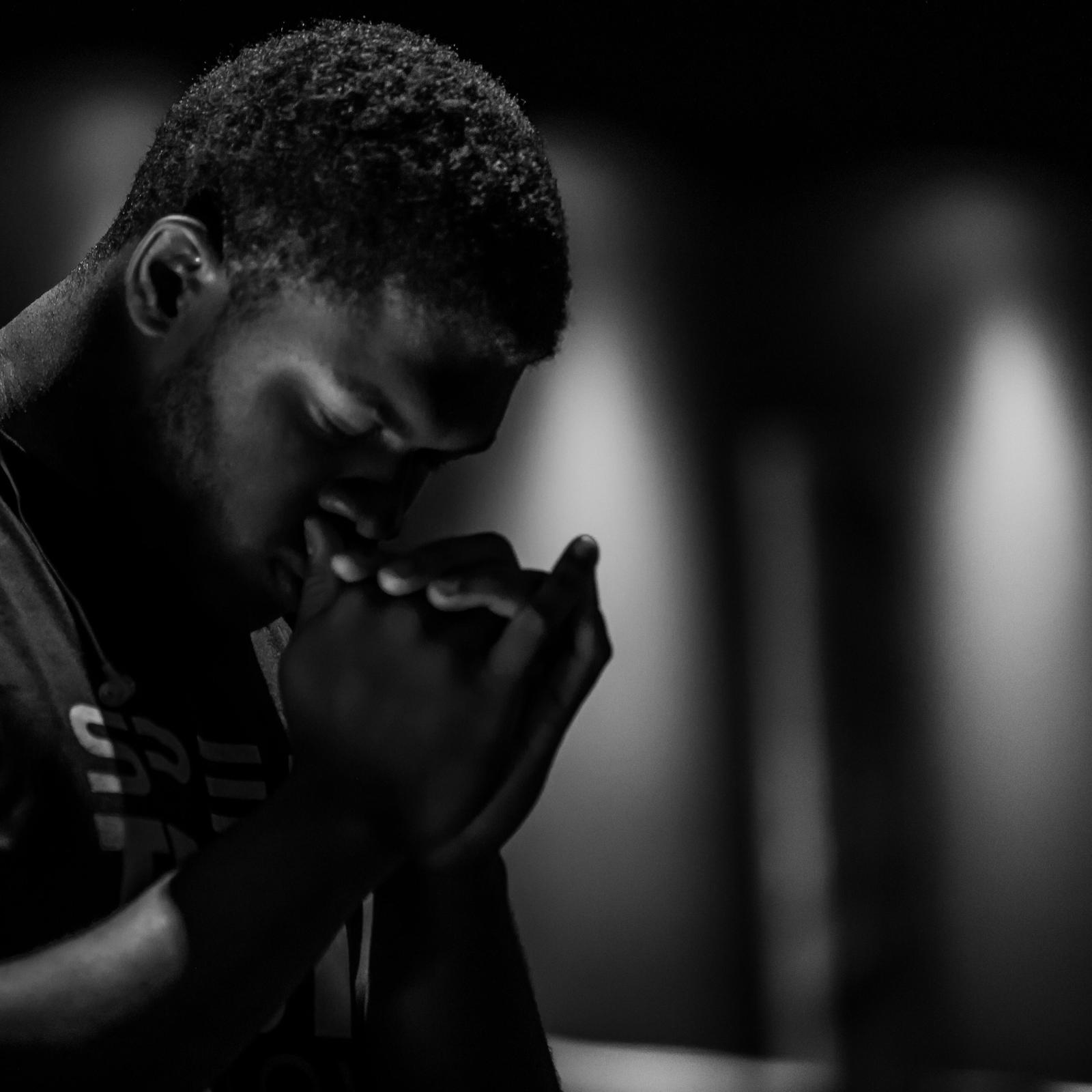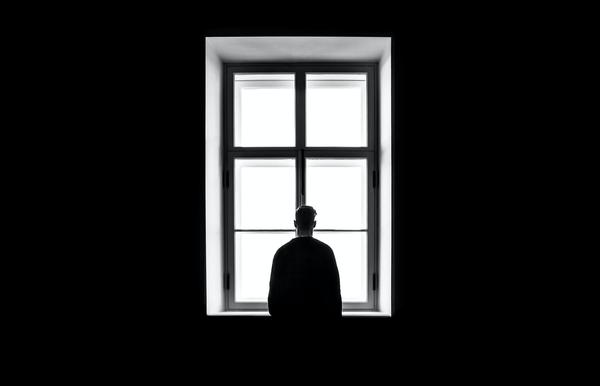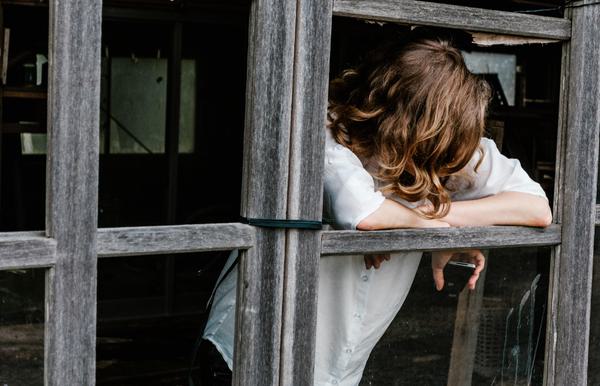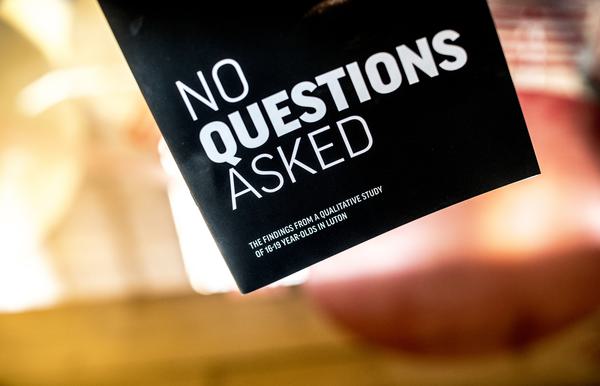Head of Research Lucie Shuker breaks down the results of our new weekly survey designed to hear how youth leaders are doing in the midst of COVID-19.
Last week we asked you some questions for the Thursday 3x3 - a way to take the temperature of the youth ministry community during the Coronavirus pandemic. Every Thursday at 3pm we ask three questions which will take you no more than three minutes to answer. We had 48 responses and this is not a representative group, so we can’t generalise from these answers to all Christian youth workers in the UK. This week we asked about spiritual support in the home, young people’s questions and your own faith practices during lockdown.
1. Faith at home – it's a bit of a blur
A couple of weeks ago the Church of England launched their Faith at Home initiative, aiming to support the faith development and pastoral care of children and young people in family life. We were curious about your perceptions of faith in the home, and how it might be affected by these circumstances. So, we asked ‘Do you think young people are experiencing more spiritual conversation/spiritual support from parents in the home since lockdown?’
The largest group (41%) said ‘I don’t know’ - which makes sense. Unless young people or parents tell you about conversations they are having, youth workers won’t really know what’s going on at home. Nevertheless 27% said ‘No’, with some commenting that young people were more likely to be getting hassled from parents, or that not many parents had the resources or capacity at the moment. 22% said ‘Yes’ and the final 10% commented that some young people were experiencing more spiritual support from parents and some weren’t, but that it depended on the parents themselves.
“We have had very little feedback from church parents when asking them about what it is happening. Our church started a rhythm of 6pm Lord's prayer a few weeks ago with a video of members from the church leading it each night. I would imagine this has sparked good routine and conversation in the home.”
In week 3 of our surveys, 73% said they had been engaging with parents they had been in contact with before, with 23% ‘somewhat’ engaging and 3% not engaging with these parents. There must be new challenges when it comes to keeping that connection. How are you finding it?
2. Definitely some questions asked
You might know that we did a piece of research a couple of years ago about young people’s questions about faith and God. Having been thrown into such an unusual situation, we wondered whether lockdown had triggered any particular reflections or questions on faith from young people. Just over a third of the comments were some version of ‘No’, with little extra commentary. The other two-thirds hadobserved reflections or questions from young people, and they ranged in theme. Some young people had questions about suffering: why did God let this happen and what does faith look like in the midst of suffering? Others were about the role and mission of the church in these times, and whether the church was a building or a community. Other questions centred on what the future might be like, on injustice, on heaven and as one youth worker put it ‘Am I too busy in normal life to hear from/follow God?’
Young people have been reflecting on “what is important in life”, “how we are reacting to different aspects of lockdown”, “the importance of real-life friendships”, “developing a personal rather than collective faith” and feeling generally grateful for what they have.As one person put it, “I think it’s helped reframe what truly matters and by extension drawn things like the question of faith into greater perspective.”
Dr Phoebe Hill recently wrote a blog post, revisiting the No Questions Asked research and identified that curiosity can be fostered in environments…
- where inquisitiveness is encouraged
- where a safe space is created
- where conceptual tools are provided
- where knowledge and experience is harnessed
- where peer discussion is facilitated.
How could you develop these, to support young people’s curiosity about their own and others’ experience?
3. Lockdown practice: less singing but more celebration
Finally, this is the week when we launch our latest piece of research, We do God, exploring the role of Christian practices in missional youth work. Given that life looks so different for us now than it did a few months ago, we asked one of our survey questions again. Have you been intentionally practising any of the following in the last six weeks?
Most of the top five are the same, with the exception of worship/singing which this group were engaging less in, compared to the ‘We do God’ sample. Taking the place of worship in the top five is celebration. I’d love to know what this looks like for different people. Are we making more of the celebrations happening anyway (like birthdays or Easter) or are we celebrating more? Previous surveys have certainly picked up a strong sense of ongoing gratitude, and this may well be related to the practice of celebration – even in these challenging times. There has also been an increase in the practices of lament, living simply and rest. But don’t worry. in case you’re thinking we’ve all gone mega holy, fasting is still down at the bottom of the list…
